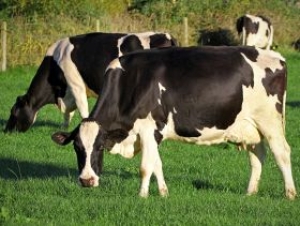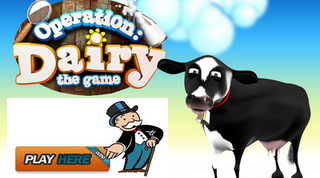World Markets

The protestors called on the MEPs to act responsibly with the producer in mind and decide on efficient rules for the market.
“The fact that so many colleagues from all over Europe have demonstrated shows how important the future of rural agriculture is for society," said EMB President, Romauld Schaber.
"This future can only be secured through flexible supply management through a European Monitoring Agency," added Mr Schaber.
Sieta van Keimpema, Vice-President of the EMB said: "There is an answer to the closure of farms. With the aid of a flexible supply management further damage to the milk market can be prevented."
The Spanish Minister of Agriculture, Food and Environment, Miguel Arias Cañete, also warned this week that the end of milk quotas in 2015 could aggravate the problems of competitiveness of European producers.
"Unfortunately, I fear that the end of the milk quota regime will only exacerbate the diminished competitiveness of the dairy production sector," said Arias Cañete in a speech at a public debate held as EU agriculture ministers gathered in a Council in Brussels.
"In recent months Spain has raised awareness to the plight of the dairy sector, and followed developments with great concern," said the Spanish minister.
The European Commissioner for Agriculture, Dacian Ciolos, said that although the producers can not find immediate solutions to existing problems, he is willing to discuss "long-term answers."
Over the last week, farmers in Galicia went on strike for two days in protest over the farmgate milk prices in Europe being offered by Spanish processors, which the farmers said stifled dairy farming causing farms to sell up.
Meanwhile in the UK, concerns have been raised over the potential changes to the Common Agricultural Policy in the way they will affect dairy producers.
Dairy UK said that the Commission’s proposals give too much emphasis to winning continued political support for the CAP at the risk of missing an opportunity to address the real challenges of the future.
The industry body said that dairy farmers in Scotland, Wales and Northern Ireland will be disproportionately affected by a move away from historic payments to flat-rate regional payments and the proposal for capping payments will act as a brake on industry restructuring and should be withdrawn.
Dairy UK Director General Jim Begg said: “We are now at the business end of the current round of proposals and in summary they are a mixed bag for our industry.
“The importance of CAP Reform to the United Kingdom dairy industry cannot be overstated. It provides the framework within which the industry, and its competitors, operates. It can act as a brake, or an accelerator, on the sector. It has the potential to encourage, or distort, competition and it can reduce, or create, inequalities.”
The European farmers union Copa Cogeca has called for more agri-cooperatives, which it says have a crucial role in assisting farmers to manage in volatile markets.
Faced with low margins and extreme volatility on the agricultural commodity markets, Cogeca President, Christian Pees, underlined the essential role agri-cooperative play in supporting farmers in these volatile markets and in enabling them to secure higher prices for their milk.
Speaking at a Cogeca Presidency Business Forum for the Dairy Sector Mr Pees said there is strong demand on the world market for milk and cooperatives are crucial in helping farmers to take advantage of these opportunities.






















